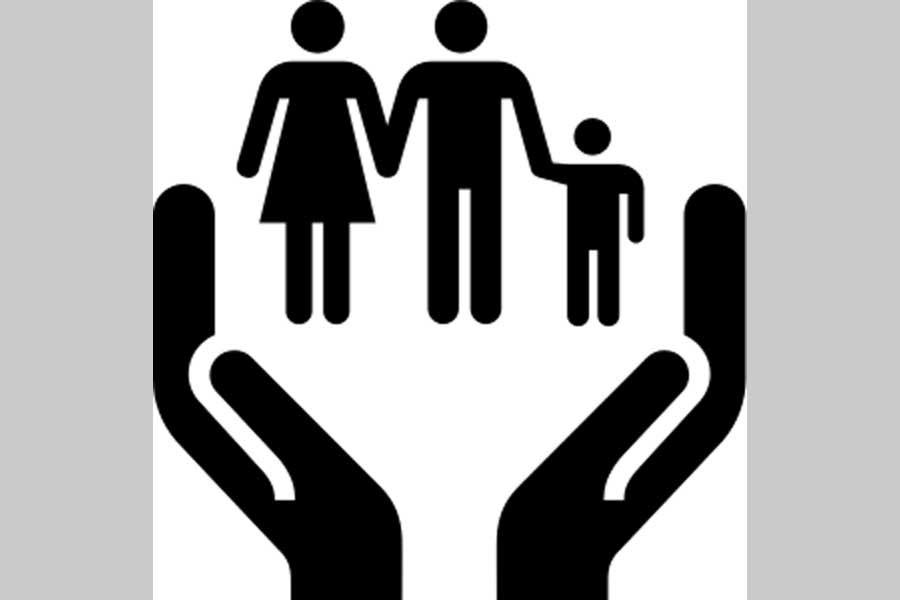In the national budget for the current financial year (2020-21), the government has earmarked allocation of Tk 7.4 billion in addition to the usual one under its social safety net programme (SSNP).
The amount is meant to help more than 1.1 million Covid-19 hit senior citizens, distressed widows and persons with physical disabilities in 100 upazilas. These people will be not among more than 6.5 million people who receive cash benefits regularly under the SSNP.
It was a generous move aimed at helping the poor during one of the most difficult times the world has witnessed so far.
But the findings of a research study published late last week by the Centre for Policy Dialogue (CPD) have triggered suspicion whether the funds so allocated would reach the targeted population.
The CPD study carried out in some selected areas of the country's northern region, however, has not unearthed anything new. Some studies carried out earlier by several national and international organisations had alleged diversion of funds allocated for the implementation of SSNP. They mentioned that beneficiaries included non-poor, in many cases. The policymakers do also admit the existence of holes in the fund disbursement under the SSNP.
But the findings of the CPD's latest study are far more serious than that of any study done earlier. It has found that 65.6 per cent of the SSNP beneficiaries were from the non-poor category. In the case of old-age allowance recipients, nearly 68 per cent were non-poor. About 72 per cent of the secondary school stipend beneficiaries were non-poor. The percentage in the case of primary school stipends was 68 per cent. The stipend programmes are, however, not a part of the SSNP.
The reasons mentioned in the CPD's latest study for misuse or abuse of SSNP funds are not anyway different from those found in the studies carried out previously. Nepotism, corruption, political consideration and 'clientele-ism' in selecting beneficiaries are among the factors that the CPD study has mentioned as reasons for the SSNP money not reaching the target population at the grassroots.
Understandably, the government does not have enough resources to extend SSNP benefits to all the poor across the country. The programme, reportedly, is supposed to cover one-third of the poor. But if more than 65 per cent of the benefits go to the non-poor, the actual coverage of poor turns out to be very negligible.
The CPD survey, reportedly, covered only 1,500 households in some north-western region. It may not be truly representative of the situation prevailing all over the country; it may be better or even worse.
The experience gained from similar programmes in the past, however, was not at all palatable. The local level political elements, in most cases, intervene and tend to plunder the resources designed to help the poor and needy. The poor do know the facts, but they do not have the power to seek a remedy.
Since the monthly allowances are directly transferred to the accounts of the beneficiaries, theoretically, there is no way to take those away by others. But the problem is not with fund transfer. The fault lies with a basic thing---the selection of beneficiaries. The poor do not make the list. It is done by others, local political elements and touts included. Thus, the names of non-poor, in many cases, dominate the list of beneficiaries. Allegations have it that extra amounts are collected just for putting a name on the list.
There is also some lack of clarity in the size of allocation shown in the budget document against the SSNP. Only a portion of the money is spent on the poor and distressed people.
For instance, the finance minister in his budget speech said Tk 955.74 billion has been allocated for the social security sector for the current fiscal year. The amount is 16.83 per cent of the total budget outlay and more than 3.0 per cent of the country's gross domestic product (GDP).
More than half of the amount will be spent on paying pension and gratuities to the government servants during the current FY. The amount does only help the government to inflate the size of the SSNP allocation, nothing else.
There is no denying that though small, the SSNP money proves to be very helpful to the neediest people and the hardcore poor. Had it reached the targets as envisioned in the programme concept, millions more would have been benefited, to some extent. The three components under which cash transfers are made regularly cover nearly 6.5 million poor and distressed people. It is a pity that the non-poor are depriving the poor of the benefits that they deserve most.
The government has been spending taxpayers' as well as donors' fund on the SSNP. It should initiate some steps to remove the names of fake poor from the list of beneficiaries.


